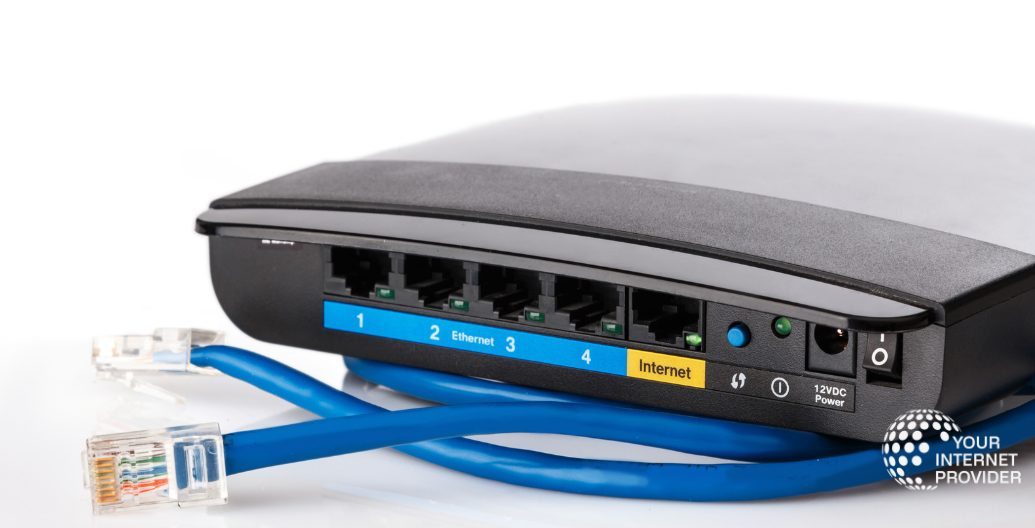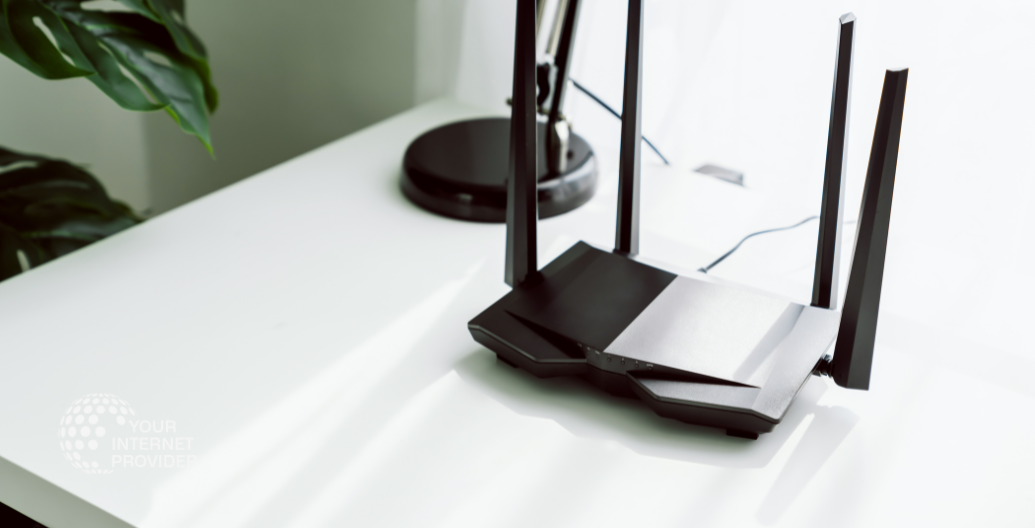
James Wilson
August 31, 2023. 7 Mins readWill 5g Be Your First Choice For Your Home Internet Service?
A reliable, fast, and efficient home internet service has become non-negotiable in the evolving digital world. And yet, with numerous options available, the decision-making could be more complex than one might wish. The latest entry into the scene is 5G technology, promising unprecedented speeds and connectivity. The question then emerges - Could 5G be the <a href="https://www.yourinternetprovider.com/internet-providers-in-your-area">best home internet service</a> for your needs? And more importantly, should it be your first choice? Let's dive in and explore these questions.
Understanding 5G Technology
Put, 5G technology is the latest generation of cellular network connectivity. It's faster and more efficient than its predecessors (4G LTE) and can deliver speeds up to 10 times faster.
An Overview of 5G's Capabilities and Features
5G, short for fifth-generation, is the latest wireless technology for digital cellular networks. 5G home internet services are set to transform how we interact with technology, offering superior speeds, lower latency, and significantly increased capacity compared to its predecessors. This means you can download or upload large files almost instantaneously, have smoother video calls without glitches, and manage multiple devices at once in your smart home.
Faster Speeds, Lower Latency, and Increased Capacity
Its incredible speed sets <a href="https://en.wikipedia.org/wiki/5G">5G</a> apart as the best home internet service. Unlike 4G, 5G can deliver speeds up to 100 times faster, making it possible to download a full-length HD movie in seconds. Moreover, 5G's low latency eliminates annoying lags, ensuring seamless streaming and gaming experiences. The increased capacity allows more devices to connect simultaneously without compromising performance, a precious feature in today's connected homes.
How 5G Differs from Previous Generations of Wireless Technology
5G brings a paradigm shift in wireless technology. Unlike 4G, which primarily focuses on delivering faster mobile broadband services, 5G integrates various advanced technologies to provide comprehensive network solutions. These include massive machine-type communications (mMTC) for handling many connected devices and ultra-reliable low latency communications (uRLLC) for real-time applications. In essence, 5G is not merely an upgrade but a revolution, poised to change how we perceive and use home internet services.
Current State Of 5G Home Internet
In recent years, 5G has been gaining immense traction with major telecom companies worldwide. The technology is on the verge of becoming a practical choice for home internet usage across numerous countries. While the exact rollout timeframes differ from place to place, one thing is sure - 5G will eventually become the best choice for home internet services if you're looking for faster speeds, lower latency, and increased capacity.
Availability in Select Areas: Urban vs. Rural Coverage
5G home internet services are available in select areas, predominantly in urban and densely populated regions. The high-frequency nature of 5G signals means they do not travel well over long distances or penetrate through physical obstacles such as buildings efficiently. As a result, deploying 5G in rural areas poses significant challenges. On the other hand, urban areas are witnessing a rapid rollout of 5G networks owing to a higher concentration of users and relatively compact geography.
Limited Number of Providers Offering 5G Home Internet
Currently, only a handful of providers offer 5G home internet services. Major telecom operators like Verizon, AT&T, and T-Mobile are leading the charge, with several smaller players venturing into the 5G space. While the options gradually grow, they remain limited compared to established broadband and 4G services.
Expansion Plans and Timeline for Broader Coverage
Despite these limitations, the future looks promising. Telecom operators have aggressive expansion plans and invest heavily in infrastructure to enable nationwide 5G coverage. While comprehensive 5G availability is still a few years away, significant progress is expected in the near term. The next few years will likely see a considerable expansion in 5G availability, bringing us closer to the day 5G becomes the norm for home internet service.
Factors To Consider Before Choosing 5G For Your Home Internet
Before deciding to switch to 5G home internet service, it's essential to consider several significant factors. These considerations will help you make an informed choice from coverage to equipment.
Coverage and Signal Strength
A primary determinant of whether you should opt for 5G home internet services is the availability of 5G coverage in your area. 5G signals have limited reach and can be hindered by physical obstacles, which means specific locations may need strong or consistent 5G coverage. Therefore, it's crucial to check with providers about 5G availability in your area and also inquire about the reliability of the signal strength.
Network Congestion
Network congestion can impact your internet speed and experience, especially during peak usage. Despite the remarkable speed potential that 5G offers, it's crucial to recognize that these speeds may fluctuate based on the volume of users connected to the network simultaneously. Hence, it is necessary to ask providers about their subscriber density and how they handle network congestion during peak hours.
Data Caps and Throttling
While 5G offers impressive speeds, some providers may implement policies such as data caps, which limit the amount of data you can use in a given period. Once you exceed the data cap, your internet speed may be throttled or slowed down. Understanding these policies and the potential effect on your internet experience will help you evaluate whether 5G is the right choice for your home internet service.
Equipment Requirements
Connecting to 5G at home may require specific devices or equipment. Some providers may require you to use a 5G router or modem, while others might require a specific type of 5G-compatible device. Understanding these equipment requirements and their associated costs is crucial in deciding.
Comparison With Traditional Broadband Options
When considering 5G home internet services, comparing them with traditional cable or fiber broadband options is crucial. Several factors come into play in this comparison, including speed and reliability, pricing, data limits, and customer support.
Speed and Reliability: 5G vs. Cable/Fibre Broadband
5G offers theoretical speeds that far outpace those of traditional broadband services. While the actual speeds experienced by users will depend on various factors, including network congestion and signal strength, 5G's potential for faster downloads and lower latency is undeniable. On the other hand, cable and fiber broadband services provide reliable, steady speeds that are likely to stay the same as 5G might. These services also have established infrastructure, which makes them a more reliable choice in areas where 5G coverage is limited or inconsistent.
Pricing: Comparing the Cost of 5G with Wired Options
Pricing is another critical factor to consider. While 5G promises faster speeds, it may also have a higher price tag, especially in its early stages. On the other hand, traditional broadband services often offer competitive pricing and bundled services that make them a more affordable choice. The cost of any necessary 5G equipment should be considered when comparing prices.
Data Limits: Analysing Data Caps and Unlimited Plans
While some 5G providers may implement data caps, others offer unlimited data plans. This is similar to traditional cable and fiber broadband services, where policies vary from provider to provider. When comparing 5G with traditional internet options, it's essential to understand the data policies of each and to consider your household's data usage habits.
Customer Support: Examining Customer Service for 5G vs. Traditional ISPs
Customer support is a crucial aspect of any service. While traditional ISPs have years of experience and established support channels, 5G is a newer technology, and customer support systems may still evolve. Potential issues may take longer, and support may be less readily available than established broadband services. When choosing, it's important to consider each service's level of customer support.
Potential Use Cases For 5G Home Internet
5G home internet services offer several potential use cases. Here are a few of them for your guidance.
Urban Dwellers: High-Speed, Wireless Convenience for City Residents
5G home internet services are compelling for those living in bustling city environments. Promising unmatched speeds and wireless convenience, 5G can provide urban dwellers with a seamless, high-quality internet experience catering to their high-demand digital lifestyles. Whether streaming Ultra HD movies, participating in online gaming, or managing smart home devices, 5G can handle it easily.
Rural Areas: Bridging the Digital Divide with 5G Coverage
In rural areas, where standard broadband services may be limited or unavailable, 5G home internet services can be a game-changer. By leveraging 5G technology, internet service providers have the potential to bridge the digital divide, ensuring connectivity in remote and underserved locations. This provides rural communities access to digital resources and opens economic growth and development avenues.
Temporary Setups: Flexibility for Renters or Short-Term Residents
5G home internet services are also an ideal choice for temporary setups. Renters or short-term residents who might not want to commit to a long-term broadband contract can benefit from the flexibility offered by 5G. As it's a wireless service, setting up and dismantling connections becomes a hassle-free experience, making it the ideal choice for people constantly moving.
Backup Option: 5G as a Backup for Wired Connections
Finally, 5G can be a reliable backup option when your primary wired connection fails. Given its high-speed capabilities, having a 5G home internet service as a backup ensures that your online activities are uninterrupted, even during downtime. This can be particularly beneficial for individuals working from home or businesses that rely heavily on internet connectivity.
Security And Privacy Concerns With 5G Home Internet Services
When contemplating switching to 5G home internet services, it's essential to consider security and privacy concerns. As with any new technology, 5G poses potential risks that users must be aware of.
Network Security: Protections in 5G Networks
5G networks are designed with a greater emphasis on security than their predecessors, but they need to be invincible. Cyber threats continue to evolve, and with 5G's expanded bandwidth, the attack surface could increase, potentially leaving users more vulnerable to cyber attacks. It's essential to ensure that your service provider has robust security measures to protect against such threats.
Data Privacy: Safeguarding Your Personal Information
Privacy is another significant concern with 5G home internet services. As with any internet service, your online activities could be tracked, and your personal information may be at risk. Understanding how your service provider handles your data is crucial—do they have a clear, user-friendly privacy policy? Do they commit to not selling your data to third parties? These are critical questions when considering 5G for your home internet service.
IoT Security: 5G and Your Smart Home Devices
5G's high speed and low latency make it perfect for powering IoT devices in your home. However, each connected device presents a potential entry point for hackers. Ensuring these devices are secure, regularly updated, and managed correctly is vital to maintaining a secure 5G home network.
Mitigating Risks: Steps to Enhance Your 5G Security
The potential risks of 5G don't mean you should avoid this promising technology. Instead, consider steps to mitigate these risks, such as using strong, unique passwords, enabling two-factor authentication, and regularly updating your devices and equipment. In addition, educate yourself about common cyber threats and how to avoid them. With these precautions, you can confidently adopt 5G as your home internet service while keeping security and privacy at the forefront.
Wrapping Up: Is 5G the Best Home Internet Service for You?
The introduction of <a href="https://www.yourinternetprovider.com/internet-providers-in-your-area">5G home internet services</a> certainly marks a significant advancement in connectivity, offering remarkable speeds, ultra-low latency, and the convenience of a wireless setup. It holds immense potential for urban dwellers, rural communities, temporary residents, and those seeking an efficient backup internet solution. However, like any new technology, it also raises questions regarding its security, privacy, and customer support, which users must carefully consider.
Whether 5G will become your first choice for home internet service ultimately hinges on your circumstances—your location, data consumption, flexibility requirements, and security concerns. Striking a balance between the alluring prospects of 5G technology and its potential hurdles is vital to arrive at a well-informed decision that aligns with your specific requirements. As we continue to progress into this digital age, it's clear that 5G has the potential to play a pivotal role in shaping our connected future. But as consumers, our choices will be guided by how well we understand these new digital landscapes and how best we can navigate them.
FAQs
What is 5G and how does it work?
5G is the latest development in wireless technology, crafted to provide swifter speeds, reduced latency, and heightened dependability in connections compared to its forerunners. 5G networks use a system of connected antennas to transmit and receive data, leveraging higher frequency bands to deliver increased capacity and coverage.
How does 5G home internet service compare to traditional broadband?
5G home internet service offers faster speeds, lower latency, and a wireless setup, making it an excellent alternative to traditional broadband, particularly in areas where wired broadband may not be available or reliable. However, it's worth noting that the coverage and quality of service can vary depending on your location and the 5G provider.
What are the potential security risks with 5G home internet services?
While 5G networks are designed to emphasize security, they still present potential risks. Expanding bandwidth could increase the attack surface, potentially leaving users more vulnerable to evolving cyber threats. Additionally, as 5G powers more Internet of Things (IoT) devices in homes, each connected device presents a potential entry point for hackers.
How can I enhance security using 5G home internet services?
Employ robust and distinct passwords for your devices and network to bolster security measures. Activate two-factor authentication and consistently update your devices and equipment to guarantee you incorporate the most recent security patches. It's also crucial to understand how your service provider handles your data and to ask about their privacy policy.
Is 5G home internet service the right choice for me?
The decision to switch to 5G for your home internet service depends on your circumstances—your location, data consumption, flexibility requirements, and concerns about security and privacy. It's necessary to weigh the potential benefits and challenges of 5G before deciding.


